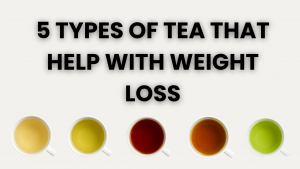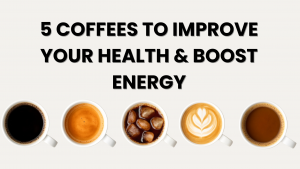
Coffee and Mental Health: How Your Daily Brew Impacts Your Mind
Table of Contents
- ☕ The Good: Mental Health Benefits of Coffee
- 1. Boosts Mood
- 2. Improves Focus and Concentration
- 3. May Lower Risk of Depression
- 4. Antioxidants for Brain Protection
- ⚠️ The Not-So-Good: Mental Health Concerns Linked to Coffee
- 1. Anxiety and Jitters
- 2. Sleep Disruption
- 3. Dependence and Withdrawal
- 🧠 How to Drink Coffee for Better Mental Health
- 🔁 Coffee Alternatives for Mental Wellness
- 🌿 Final Thoughts
Coffee and Mental Health: How Your Daily Brew Impacts Your Mind
- Adam Smith
- 02-05-2025
- 02-05-2025
- 753 views
- Coffee Health

For many, coffee is more than a drink—it’s a ritual, a comfort, and even a coping mechanism. But beyond its energizing kick, coffee plays a more complex role in our mental health. From boosting mood to potentially increasing anxiety, the relationship between coffee and the mind is nuanced.
In this blog, we’ll explore how coffee affects mental health—both positively and negatively—and how to enjoy your daily brew in a way that supports well-being.
☕ The Good: Mental Health Benefits of Coffee
1. Boosts Mood
Coffee stimulates the central nervous system by increasing the production of dopamine and serotonin—two key neurotransmitters associated with happiness and motivation. That’s why many people feel an immediate mood lift after their first cup.
2. Improves Focus and Concentration
Caffeine, the main active compound in coffee, blocks adenosine (a neurotransmitter that promotes sleep), allowing other alertness-boosting chemicals to dominate. The result? Sharper focus, faster reaction times, and improved short-term memory.
3. May Lower Risk of Depression
Several studies have found that regular coffee consumption is associated with a reduced risk of depression. A Harvard study found that women who drank 2–3 cups of coffee daily were 15% less likely to develop depression.
4. Antioxidants for Brain Protection
Coffee is rich in antioxidants, which help reduce inflammation and oxidative stress—factors linked to mood disorders and neurodegenerative diseases like Alzheimer’s and Parkinson’s.
⚠️ The Not-So-Good: Mental Health Concerns Linked to Coffee
1. Anxiety and Jitters
Too much caffeine can lead to restlessness, increased heart rate, and heightened anxiety—especially in people who are already sensitive to stress. This can mimic or worsen symptoms of panic attacks.
2. Sleep Disruption
Drinking coffee late in the day can interfere with sleep, and poor sleep is closely linked to worsening mental health. Even if you don’t feel wide awake, caffeine can reduce your quality of deep sleep.
3. Dependence and Withdrawal
Caffeine is addictive. When you skip your morning cup, you might experience headaches, irritability, and fatigue—symptoms of withdrawal that can briefly affect mood and productivity.
🧠 How to Drink Coffee for Better Mental Health
-
Stick to 1–3 cups per day. Most benefits are seen in moderate intake. Overdoing it can reverse the positives.
-
Avoid coffee after 2 PM. This gives your body time to process the caffeine before bed.
-
Try half-caf or decaf. Especially if you’re sensitive to anxiety or insomnia.
-
Don’t use it to replace sleep. Coffee is a supplement to good rest—not a replacement for it.
-
Listen to your body. If coffee makes you feel anxious, jittery, or irritable, reduce your intake.
🔁 Coffee Alternatives for Mental Wellness
If coffee isn’t working for your mind, there are other great options:
-
Matcha: Provides a calm alertness thanks to L-theanine, which helps reduce anxiety.
-
Golden Milk: A turmeric-based drink with anti-inflammatory benefits.
-
Herbal Teas: Chamomile and lemon balm promote calm and relaxation.
🌿 Final Thoughts
Coffee can absolutely be a part of a mentally healthy lifestyle. When consumed mindfully and in moderation, it can lift your mood, sharpen your focus, and even help protect your brain. But like all things, balance is key.
So next time you reach for your brew, ask yourself: “Is this helping me feel my best?” If the answer is yes, sip and savor. If not, it may be time to adjust the timing or dose—or try a gentler alternative.
Here’s to coffee—and your peace of mind. ☕🧠






















